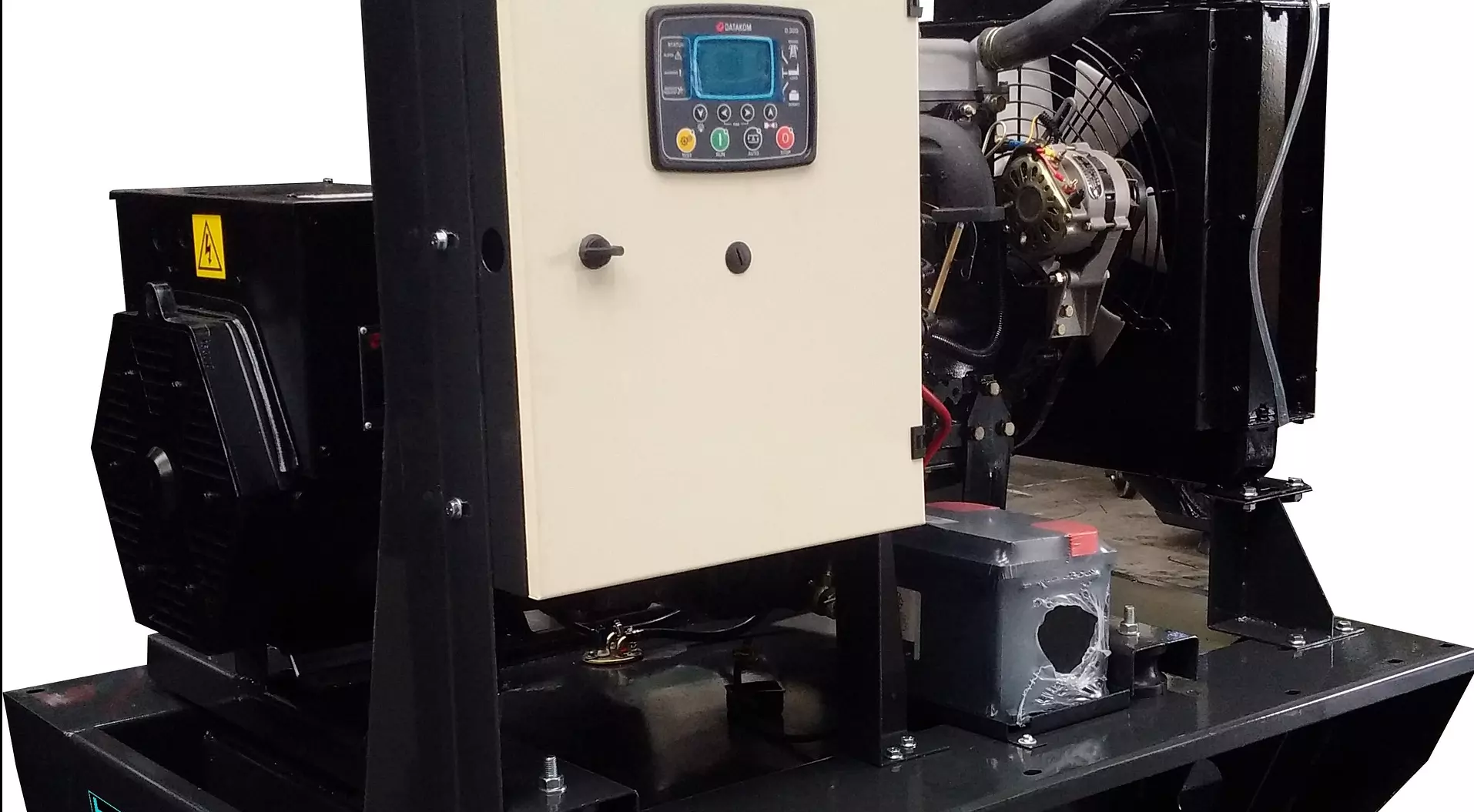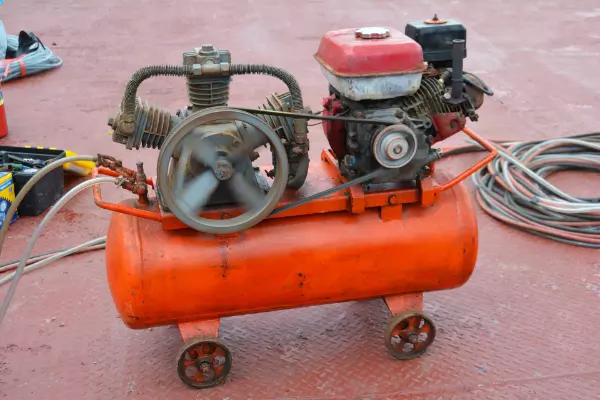What is the best diesel generator for home use? We look at the benefits of a diesel generators and how reliable diesel generators are?
What is the Best Diesel Generator for Home Use?
We all know the inconvenience of a power cut, and at some point, you would have been in the candle-lighting situation. However, as many buyers are beginning to realise, there's a much better alternative; investing in a home generator. This could be a serious long-term purchase that you're missing out on.
Diesel Generator
Buying a diesel-powered generator for your home is a worthwhile investment for you and your family, but the wide range of brands and choices is daunting for many.
With terms such as wattage, fuel type, and load type thrown at you, the options on the market can seem endless. We're here today to simplify this process and address some of the options to get you the best diesel generator.
When it comes to powering your home, if that's in the case of a power cut or an external event you're hosting, you have many types of generators to assess.
You must consider the size of the generator, the size of your house or event, and the number of powered appliances when making this decision. With this decided, your options are a portable generator or a standby generator.

Portable generators are not the most practical choice for powering your home due to their lower power supply. They can power a few appliances but won't have enough KW for anything more.
Typically, they can output power from 1KW to 15KW and will be used to power electrical devices or used in construction sites, for example, so they may not have the watts of power you need for your entire home.
Standby is the better option when combating power cuts, as their design allows them to power your home automatically.
They run on petrol, diesel, or other mains gas and are connected to your consumer unit, meaning when the power goes out, these generators come on.
The noise level can also be lower than expected, especially with a standby. Some models will appear almost silent, so don't let what you read deter you. Keep in mind that these are not made for constant use, though.
Benefits of a Diesel Generator
Understandably, your main concern about buying a generator will be the price and efficiency. You don't want it to become a burden and cost you more when it's meant to alleviate stress. There are also different types of fuel to consider.
When it comes to the generator itself, diesel-based models tend to price cheaper, and compared to other units, can require part replacements less frequently.
Although it will still require general maintenance, not having to replace parts like spark plugs as often is a main selling point. Diesel generators can also be more fuel-efficient than liquid propane or petrol-powered models.
This is due to the diesel engines having higher thermal efficiency and can provide more energy with a longer running time when compared to other models at the same running capacity.
A liquid propane generator should be considered if you want a portable generator, as they're connected to the main electric house panel.
They can be cheaper to operate but generally won't be as reliable for powering a whole home. Petrol generators are the most common fuel type but can go off if it's stored for a long time, which you don't want if the power cuts out.
How reliable are diesel generators?
The use and reliability of diesel generators go beyond the commercial. Many hospitals and critical care facilities rely on diesel-based generators to serve as backup power for their organisations.
The reason why they choose diesel is the fuel efficiency and the quick response time, as they can start and absorb the full electrical load in as little as ten seconds. In places like hospitals, this is crucial. Look at this for guidance because a diesel generator can keep the places we rely on the most active.
As mentioned previously, you won't have to maintain a diesel generator as often due to having fewer parts in comparison to other models. Another plus is that diesel is less flammable, meaning there's less risk of a freak fire.
On top of this, not having spark plugs reduces this risk even more. You can rely on these generators powering your home for a while, whilst the electrical power is being sorted and can offer safety too.
If you have concerns, make sure you're comfortable talking to a professional. Our team is experienced and can answer any queries you have, so don't hesitate to get in contact today via phone or email.
How to Choose the Best Diesel Generator for Home Use
We understand the uncertainty when selecting a generator for your home, so it's important to keep these following factors in mind when researching.
The size of your generator should be a priority. Do you have the storage space for it? Do you want it to stay at your house, or are you looking for a more portable option?
This depends on what you want out of it, as we've discussed already. You'll need to access the generator and fuel tank if it's stationed at your house, so you can still perform maintenance on it.
Deciding on what features would benefit you and your generator are also important to consider. This is a unique decision as every house and situation are different, but some generators can offer features such as warning messages being displayed, notifying you about low fuel capacity, and other performance issues.
You may also be concerned about cooling, and you have options to consider there also. Liquid cooling is an option for diesel generators, but this does rely on a separate system.
In contrast, air-cooled generators rely on air to provide cooling, so this affects placement within the home. It's worth noting that many generators also come equipped with a Power Management System (PMS), which will optimise fuel consumption and overall performance.
This is a must-have feature, so be sure to enquire, as, without this feature, your generator's lifespan could be shortened.

Fuel Efficiency and Emission
When it comes to being fuel-efficient and generator management, there's no doubt that you can easily access additional fuel if so needed.
However, it's worth your time and money looking into a model with better fuel efficiency, so you're not spending any unnecessary cash on extra fuel.
Of course, keeping noise emissions low is also a big concern for customers. You don't want your generator to be loud and intrusive when in use, especially in the home.
Diesel generators have modernised beyond your conception of them and are now quieter than you'd expect. You may have heard of an inverter generator during your search, which is another good option for the home.
They are more expensive generally, so keep that in mind. However, an inverter generator works by electronically throttling the engine up and down to meet the required power demand instead of working at full capacity constantly.
This can result in better efficiency, and you won't have to fill the fuel tank up as often, but with a standby generator that kicks in only during a power outage, you won't be doing this as much anyway.
Power Requirements
Once again, you must be doubly sure that of the wattage of the appliances you want to power and the typical run time. You can check on the individual equipment and begin to make a note of any additional watts that should be added to the total wattage to ensure you have enough power in those moments.
If you're unsure about any of this, then give our knowledgeable team a call, and we can clarify everything, so we can keep you safe and stop any purchases before it's confirmed. If you want to research yourself, then remember that generators are typically broken into two categories: KVA or KW. Put simply, the higher this KVA rating is, the more power it'll produce, so this could be 1,000 volt-amps (VA).
Any standby generator should aim to be 20% greater than the estimated and required power, as anomalies can happen, and this can lead to short circuits or greater problems. We won't give any figures here on the average generator wattage size for your home, as it's best to check your appliances first and then calculate what size you're looking for, beginning with the starting wattage.

Domestic or Professional Use?
The main difference between domestic and professional use of a generator is the warranty, as they're both used for different things entirely. It all comes down to how you want your generator to power your space and for how long.
A commercial generator is typically used every day to power a workspace and must be relied on to do so. This comes with an entirely unique commercial use warranty and a more professional-grade generator.
As a business owner, you mustn't make the mistake of confusing a single-phase and three-phase generator, as buying the wrong one can either lead to irregular power or higher energy bills than needed.
Professional or Domestic
They do both use alternating current (AC), which can produce higher levels of power, but a three-phase will produce power through three sequenced currents. Due to this, they do require a higher underlying voltage.
A business owner should consider therefore choosing a single-phase generator, especially on a smaller scale. They're not made for powering around-the-clock equipment unless that equipment is being buffered by a different power source, like power tools, for example.
For domestic use, you're generally only using it in power cuts or small camping or other recreational trips, so it must be more portable and versatile. Of course, you can meet somewhere in the middle if you're looking for a commercial generator but don't have a large square-foot space to power.
A midrange professional-grade generator can be of use here and still provide that commercial warranty for your workplace needs.
Standby Generators
With all of this in mind, you should feel more educated on what type of generator would best suit your needs.
If you're part of an organisation and need daily power, then a standby perhaps isn't the best option for you, as they shouldn't be used continuously for long periods of time and are mainly relied on for power cuts.
However, it's still worth investing in one, as a power cut can mean prove a lot more damage at your place of work compared to the home. If machinery cuts out at the wrong time, that can mean damage to both equipment and employees.
A standby generator is perfect for this reason and runs on 3-4 simple pieces of equipment. As we've discussed, there's little maintenance required, and it can be a reassurance to know you have in place.
With the diesel motor, electrical generator, and an automatic transfer switch to kick in when the power grid cuts out, this style of generator is a must-have and will benefit you in the long run.
Contact Us
If you are looking to stay as prepared as possible when it comes to powering your home, call us today on 01172 541069 for help choosing the right generator for you. Now you know the best diesel generator for home use, get in contact to find the right generator for you.
Alternatively, see our range of generators here;




